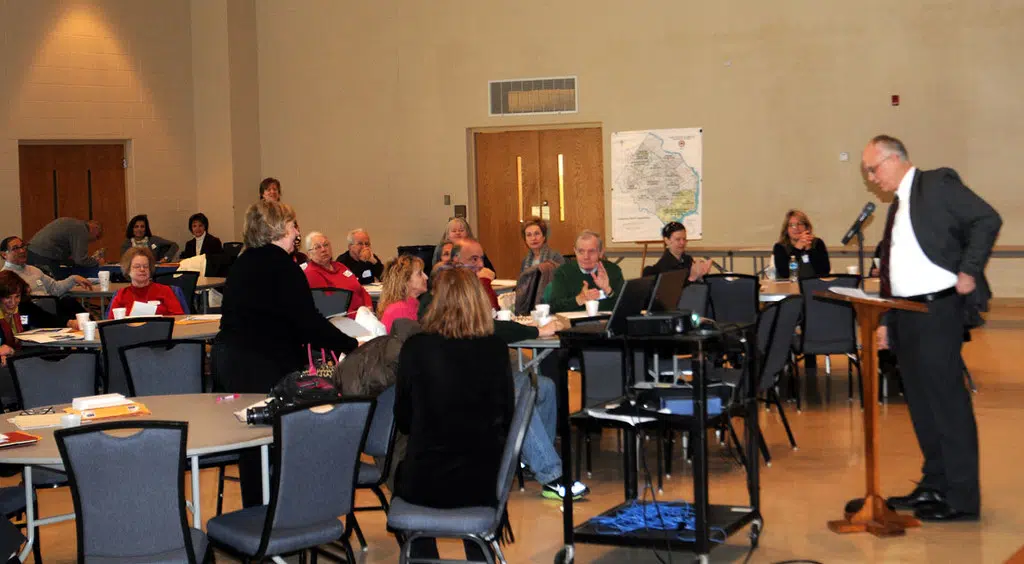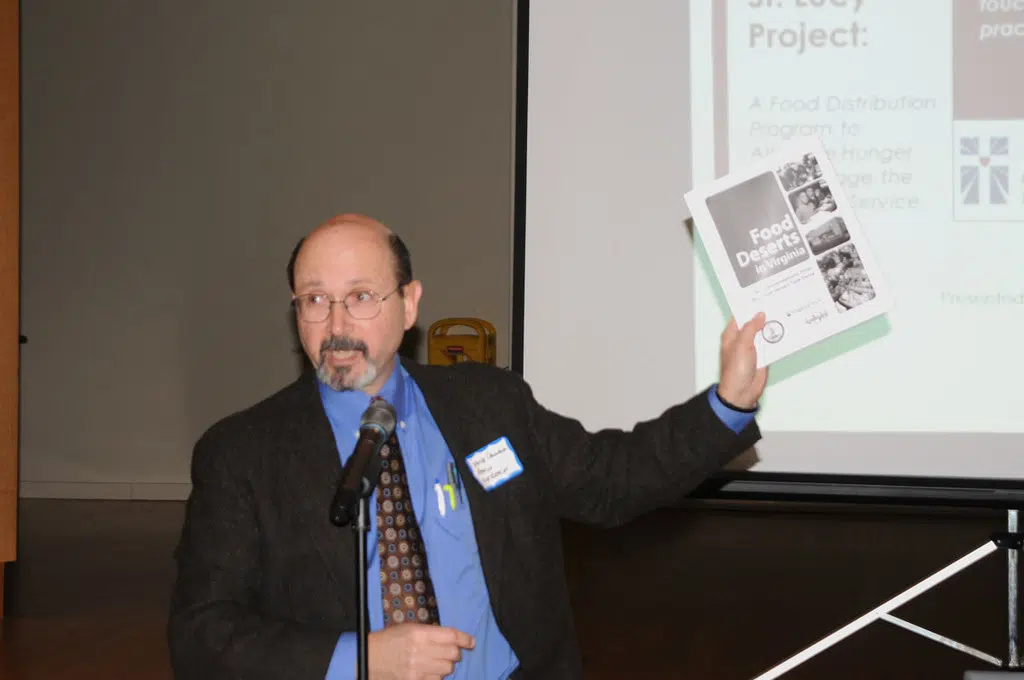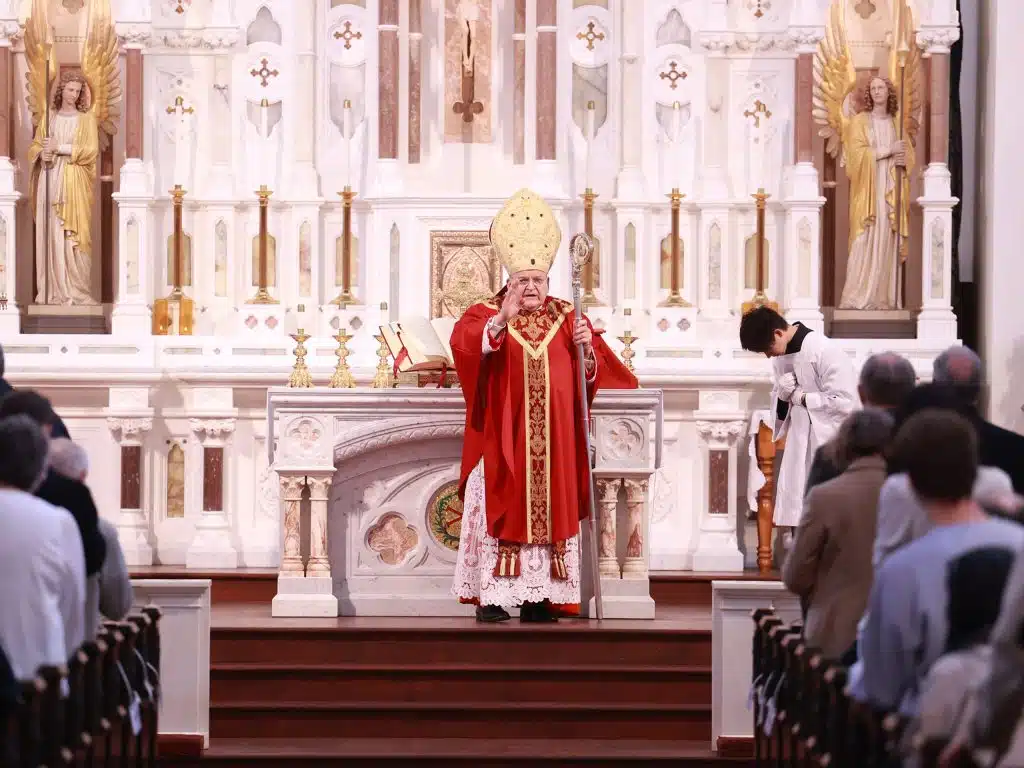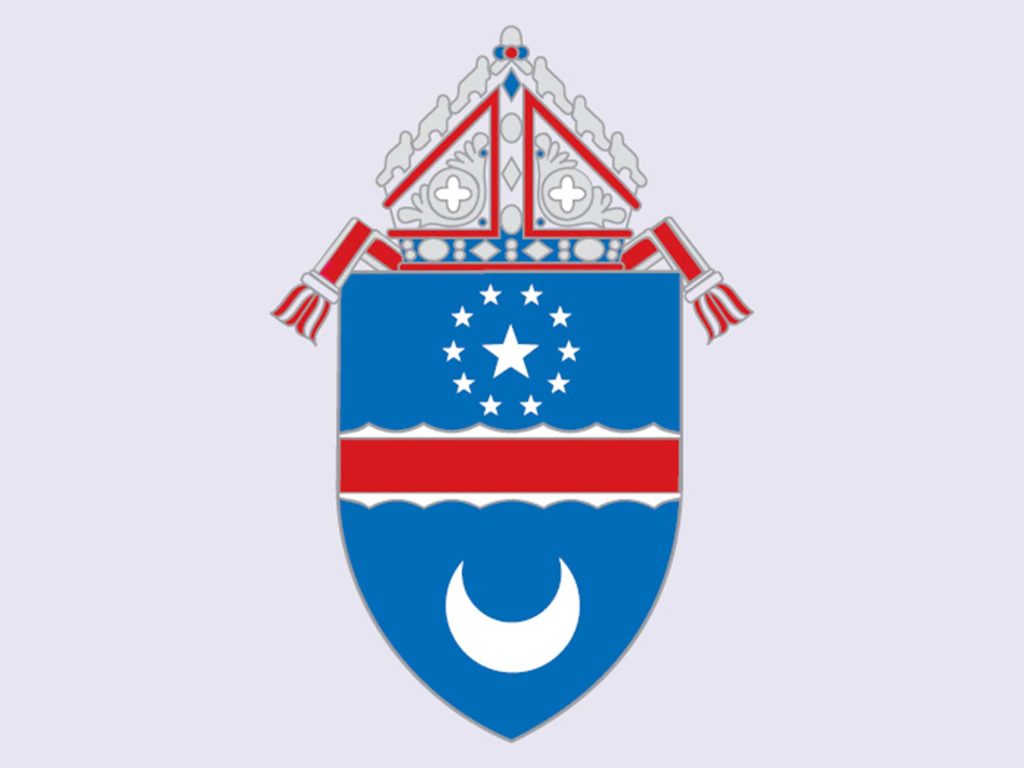It’s not easy being poor in Northern Virginia. According to
Zillow, a website that tracks real estate prices, the average
monthly rent for an apartment in Fairfax County is $1,950.
It’s not much better in Loudoun County where monthly rent is
$1,900. If the head of a family is making minimum wage, a
large percentage of their monthly income is going to pay for
housing. Food is often a secondary consideration.
To address the problem of food insecurity, diocesan Catholic
Charities parish liaisons met at Our Lady of Good Counsel
Church in Vienna Jan. 28. This quarterly meeting addressed
hunger in the diocese and the Catholic response.
Food insecurity means that members of a household do not have
enough nutritious food to maintain a healthy and active
lifestyle.
“You don’t have to be starving to death to be food insecure,”
said Catherine Hassinger, director of community services for
Arlington Catholic Charities.
Hassinger said that more than 230,000 people in the
boundaries of the Arlington Diocese are considered food
insecure. The percentage of people who are hungry in the
diocese ranges from 5.2 percent in Loudoun County to 14.2
percent in Richmond County.
There are government programs to help people get nutritious
food for themselves and their children, said Hassinger.
The Supplemental Nutrition Assistance Program (SNAP),
formerly known as food stamps, is one of the oldest programs
with its roots in post-depression United States. There are
gross and net income requirements, with monthly benefits
ranging from $194 for one person to $1,169 for a family of
eight.
SNAP also is available to legal immigrants who have lived in
the United States for at least five years. Refugees and
people admitted into the country for humanitarian reasons may
be eligible for SNAP immediately.
The Supplemental Nutrition Program for Women, Infants and
Children (WIC) helps women who are pregnant, postpartum or
breast-feeding. The program also benefits infants under one
year and children less than 5 years old. Eligibility is based
on income. Benefits range from $2,426 a month for a family of
two, to $6,181 a month for a family of eight. There is a WIC
approved food list that mothers must adhere to.
Going food shopping with WIC or even SNAP can be an
intimidating process. Hassinger has heard from clients who
have said that grocery checkout clerks often tell people in
line, “This is not approved. You can’t buy this.”
It’s not cigarettes and beer; you can’t buy potatoes or
canned vegetables that include white potatoes on WIC.
The other options for food assistance, said Hassinger, are
food pantries like those supported by Catholic Charities,
which rely on donations and allows clients to “shop” for
food.
“This is a more dignified model,” said Hassinger.
But charities cannot do the job alone. She said that only one
in 24 bags of groceries for food assistance comes from
organizations like Catholic Charities. Government food
programs provide the other 23.
Hassinger concluded her talk by saying poverty and hunger are
real in our communities.
“The poor live among us,” she said.
She also challenged attendees to try and appreciate what many
families in our communities face.
“Eat cereal for one week with water, not milk,” she said.
“Download the WIC food guide, and only purchase items on that
list.”
Vince Cannava, parish outreach specialist for Catholic
Charities’ St. Lucy Project, spoke about the diocesan network
of food pantries.
The St. Lucy Project is Catholic Charities food distribution
network, with a warehouse in Manassas as its main hub.
Cannava said that the St. Lucy Project expands the food
capability and increases reliability in parish food pantries.
He said that parish support is critical in their response to
hunger in the diocese.
The conference concluded with food pantry reports by Michelle
Knight, social justice and outreach manager at Our Lady,
Queen of Peace Church in Arlington and Jim Berry from the St.
Faustina and St. Matthew food pantries in Fredericksburg.
Paul De Rosa is the plant manager and the parish liaison at
St. Raymond of Peñafort Church in Springfield. These
quarterly meetings are important for his liaison work.
“These are wonderful,” said De Rosa. “It’s a great way to
disseminate information.”
There were 58 participants representing 33 parishes at the
meeting. All had hopes that they could identify and help the
poor among us.




